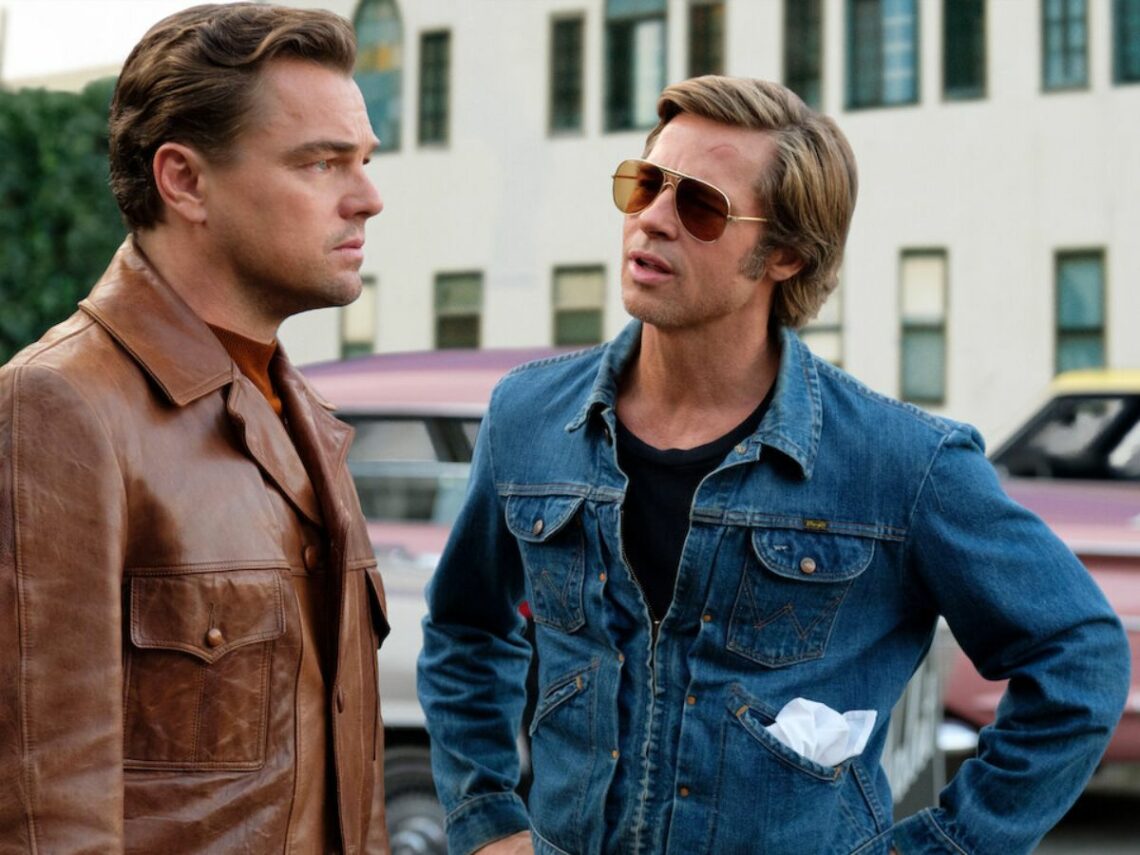Once Upon a Time in Hollywood is perhaps the most self-referential work directed by Quentin Tarantino, narrating a semi-fictionalised historical account of 1960s Hollywood. It has become widely known as his “love letter to Hollywood”.
The film stars Brad Pitt and Leonardo DiCaprio as a fictional fading movie star and his stunt double, with Margot Robbie playing a semi-fictionalised version of the dearly missed Sharon Tate. James Mardsen appears in the film’s theatrical cut as Hollywood icon Burt Reynolds, an actor who helped Tarantino in his writing and directing of the film.
As a pinnacle face of ’70s American pop culture, Reynolds gained stardom through his box office hit appearances, earning numerous award nominations and a dedicated fan following and marking cinema’s transition from the late 1960s to the ’70s. His timeless status in cinema history and culture is respected and adored by director Tarantino, who has built his own role in American filmmaking since the ’90s with his gritty yet stylised action flicks celebrating pop culture. Given their powerhouse presence in Hollywood, a cross-over and collaborative effort spark immense potential and excitement, proven in Once Upon A Time In Hollwood’s exploration of the golden days of cinematic entertainment factor and politics.
Sitting down with American talk show host Conan O’Brien on his podcast, the Kill Bill director shared details of Reynolds’ influence on the script, starting with his history causing him to “know who stuntmen are and know all the stuntmen”. The director revealed that upon finding out that Hollywood heartthrob Pitt would be playing a stuntman instead of a leading star, Reynolds responded with: “Brad Pitt is playing the stuntman? There is no stuntman who looks as good as Brad Pitt.” Tarantino found this comment to be too comical not to utilise, adding that in his semi-fictionalised and semi-historical film, “Bruce Lee says (to Pitt’s character): ‘You kinda pretty for a stuntman.'”
O’Brien expresses his interpretation of Pitt as someone who “probably doesn’t love anyone talking about his good looks,” however Tarantino addresses that it was Reynolds’ presence and influence on the project that meant Pitt had to settle, stating, “Because Burt suggested it, he kind of had no choice.”
Having Reynolds play a constructive role in the treasured Once Upon A Time In Hollywood was very important to Tarantino, who “sent him the script…because (he) wanted him to play the part.” However, the role ended up in Fight Club star Pitt’s hands, with the actor stepping into the producing realm of the film industry in recent years. Tarantino continues highlighting Reynolds’ importance to his feature, tying it with the actor’s career and status in Hollywood as supported by his history. “He was the only guy who got the whole script because this is his era,” the director reveals. “I wanted to read it, and I wanted him to be impressed by it when he read it. Which he was.”
The Hollywood icon has an evident and riveting influence on Tarantino’s journey with film; thus, the director’s goal of creating an honest and poignant tribute to Reynolds’ cinematic age makes for some touching art. The director adds: “I just grew up listening to Burt Reynolds tell Burt Reynolds stories, so when I’m talking to Burt Reynolds, I’m telling Burt Reynolds stories.”
This never-ending stream of Hollywood tales forged after a diamond 60-year-long career had power beyond the visual exposition of Tarantino’s love letter to Hollywood’s golden days. In the summer of 2021, two years after the film’s release, the director expanded on his creation with a novelisation of Once Upon A Time In Hollywood, marking his debut as an author. During the podcast, Tarantino beams as he shares with O’Brien that he paid tribute to Reynolds by adding a passage of the actor’s career in the book.
“That whole section in the book where I talked about how Rick and Cliff got together and how Rick caught fire…and he’s gonna do the worst thing he can do, which is just run,” the filmmaker explains. “Then Cliff says, ‘Rick, calm down. You’re standing in a puddle of water; just fall down’. That’s a Burt Reynolds story.”
He adds: “That happened to him in the movie Fuzz.” This action-comedy was directed by Richard A. Colla and was released in 1972, narrating a detective, played by Reynolds, as he hunts down a crime lord. “If you remember the movie Fuzz,” Tarantino begins. “In it, there’s these kids… they’re setting bums on fire, they’re going out and finding whiskey and pouring it all over him. Burt Reynolds is playing this bum…and then they come, and they set him on fire”.
“Apparently, it went bad, and he just really went up. He said, ‘oh my god, I’m starting to panic’, and then he said the stuntman’s name…who said, ‘it’s okay, you’re standing by a puddle of water, so just fall down.”
This reciprocal dynamic of advice and acts of tribute between an acclaimed actor and an influential director showcases one of Hollywood’s many special bonds. The level at which Tarantino considered Reynolds’ opinion of a historical piece of work and prioritised it as appeasing him demonstrates a thorough and objective examination of those who cemented Hollywood’s role in filmmaking.
